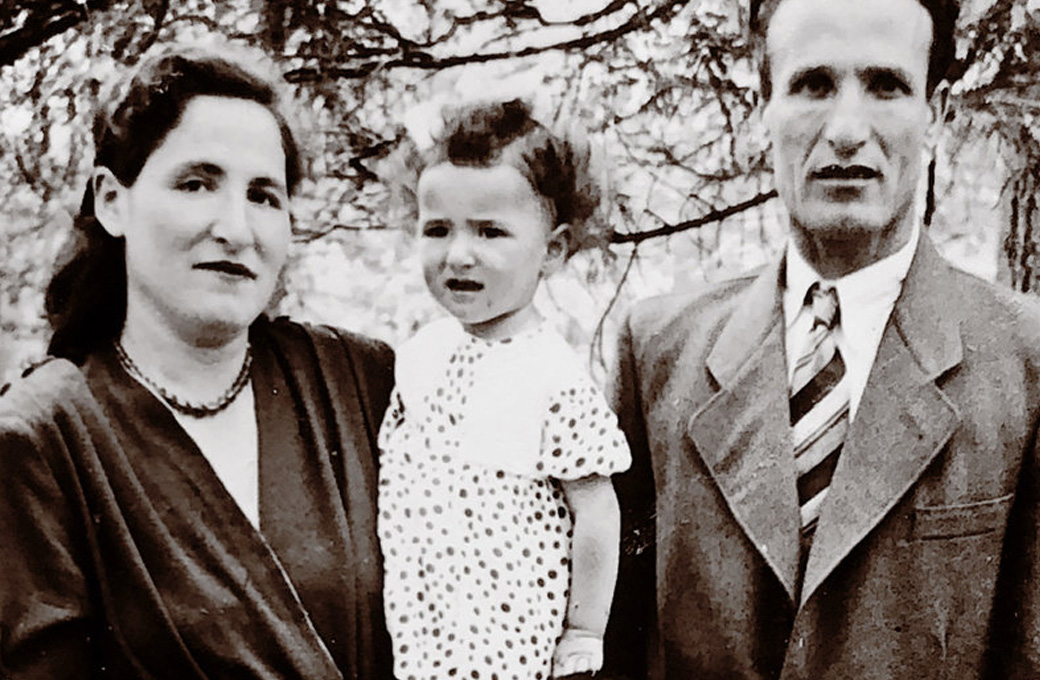JERUSALEM — By the time I married into the family, Bubby Bella’s reticence was pronounced. A survivor of Nazi genocide, Bubby had resolutely overcome it, posturing under large-brimmed hats while ordering egg rolls and lo mein in Philadelphia’s northeast.
Whatever demons Bubby knew in Poland were long silenced. Her wounds had in America become scars and like other women of her generation, Bubby kept them unseen. Beneath her traumas, her prewar memories lay dormant. Somewhere inside Bubby, an innocent child was lost.
One spring, Bubby flew first-class to stay with our budding family in Jerusalem. Aging and not in the best of health, Bubby spent the days before Passover convalescing from her trip.
In the company of her great-grandchildren, Bubby appeared content. My wife and I could sense our matriarch was at the end of her journey. For the children, however, and for Bubby, the occasion was joyful.
Though I worked hard to understand her mishmash of Yiddish and English, she never confided the details of her wartime ordeal. I know she was pregnant with her son when she and her husband fled to the forest from Korytnica, Poland.
Was she in town when Germans forced its Jewish residents into slave labor, when the Germans stole all their valuables and when, in May of 1942, the Gestapo shot most of the remaining Jews in a pit outside the town?
What were her defiant eyes made to see? Bubby would never say. Whatever tenderness she had known as a girl had been erased. How much of her childhood did Bubby remember and how much was she compelled by trauma to forget?
After the war, Bubby and her husband, Victor, buried their histories and moved on. Severed from their roots, the valiant pair and their children, Mark and Ruth, made their way to Philadelphia, where they tended to tradition in a manner that suited them. From her patois to her potato kugel, Bubby was thoroughly Jewish.
Though no longer Orthodox herself, Bubby took great pride in her Orthodox descendants. Just as certain recessive traits skip a generation, a compromised faith can take time to make itself known again.
Reclining beside her descendants at the Passover Seder, Bubby looked radiant. Spending Passover with her great-grandchildren in Jerusalem was for Bubby a deserved coda to a harrowing life.
Customs and rituals came alive that night in ways they had not before as we celebrated freedom with a Holocaust survivor.
Tradition can be intoxicating. Bubby had yielded the formalities of Orthodoxy but not the informal rituals of Judaism.
On the second night of Passover, my wife and I returned home from a late-afternoon outing to find Bubby primping before a mirror. We had left Bubby lounging and expected to find her asleep when we returned. Seeing Bubby in a state of frenzied preparation concerned us. The first night’s Seder had lasted long past midnight and sapped Bubby of her energy. Because of her frailty, we had assumed she would make do with the Seder we’d already had.
“What are you, meshuggah?” Bubby howled, questioning our sanity in straightforward Yiddish. At that moment, Bubby was more Orthodox than we were.
As we broke the middle of three matzos, a highlight of the Seder ceremony, a shiver seemed to run through her as she sat at the head of the table. Bubby had been transported to another place and time.
“I remember my father, before the war, hanging a matzo on the wall,” murmured Bubby, entranced.
Suddenly, there before us, sat a young Polish child with a lifetime ahead of her. On a whim, I placed the object of her fascination in a Ziploc bag and hung it from the curtain rod opposite her gaze. In the company of her great-grandchildren, time for Bubby collapsed. Korytnica had come to Jerusalem and the sickening wartime atrocities had never occurred. That mystical matzo shard held Bubby’s attention for the duration of Passover.
I investigated the roots of this unleavened talisman. In Orthodox tradition, Passover matzo is prepared with flour safeguarded from moisture from the moment of reaping. “Guarded” matzo was thought in some communities to bestow protective strength. If only its power had been great enough to vanquish the evil that obliterated Bubby’s innocence.
Bubby died years ago, but Passovers have been forever affected for our family. From a twisted brass curtain rod, Bubby’s matzo has been guarding us for over a decade. To those who notice the amulet, we retell the affecting tale.
Our children know where they come from and on Passover honor their ancestry. With glances toward the yellowed Ziploc bag, they remember the night that Bubby’s childhood memories, which had remained hidden for so long, were revealed.
Mendel Horowitz, a psychotherapist, is working on a book about Orthodox men, group therapy and faith.
Follow The New York Times Opinion section on Facebook, Twitter (@NYTopinion) and Instagram.
Source: NY times




